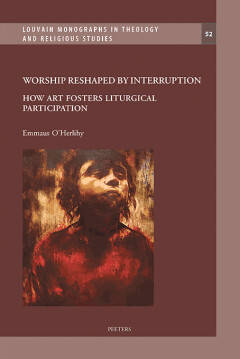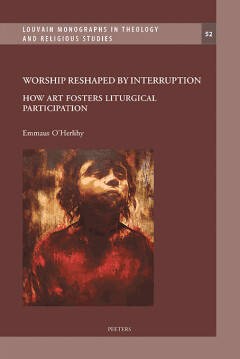
Bedankt voor het vertrouwen het afgelopen jaar! Om jou te bedanken bieden we GRATIS verzending (in België) aan op alles gedurende de hele maand januari.
- Afhalen na 1 uur in een winkel met voorraad
- In januari gratis thuislevering in België
- Ruim aanbod met 7 miljoen producten
Bedankt voor het vertrouwen het afgelopen jaar! Om jou te bedanken bieden we GRATIS verzending (in België) aan op alles gedurende de hele maand januari.
- Afhalen na 1 uur in een winkel met voorraad
- In januari gratis thuislevering in België
- Ruim aanbod met 7 miljoen producten
Zoeken
€ 110,45
+ 220 punten
Omschrijving
This monograph presents a new understanding of how art fosters the liturgical principle of participation. It begins by highlighting the importance of liturgical participation and how it qualifies works of art intended for display in a liturgical environment, before discussing the key moments of conflict surrounding contemporary art in liturgical space over the last century. Following this historical review, the author brings Flemish theologian Lieven Boeve's hermeneutic of interruption into dialogue with principles of art identified as postmodern. In the process, he examines the theological significance of art that involves the viewer in an interruptive, ethical, and empathetic encounter with Christ in the Other. Drawing on several areas of study, including contextual theology, liturgical inculturation, art theory and philosophy, this study concludes by demonstrating how present-day strategies in art constructively challenge and vivify an assembly so as to advance their full, conscious and active participation in the liturgy.
Specificaties
Betrokkenen
- Auteur(s):
- Uitgeverij:
Inhoud
- Aantal bladzijden:
- 227
- Taal:
- Engels
- Reeks:
- Reeksnummer:
- nr. 52
Eigenschappen
- Productcode (EAN):
- 9789042953413
- Verschijningsdatum:
- 24/10/2024
- Uitvoering:
- Paperback
- Formaat:
- Trade paperback (VS)
- Afmetingen:
- 160 mm x 240 mm
- Gewicht:
- 181 g

Alleen bij Standaard Boekhandel
+ 220 punten op je klantenkaart van Standaard Boekhandel
Beoordelingen
We publiceren alleen reviews die voldoen aan de voorwaarden voor reviews. Bekijk onze voorwaarden voor reviews.









